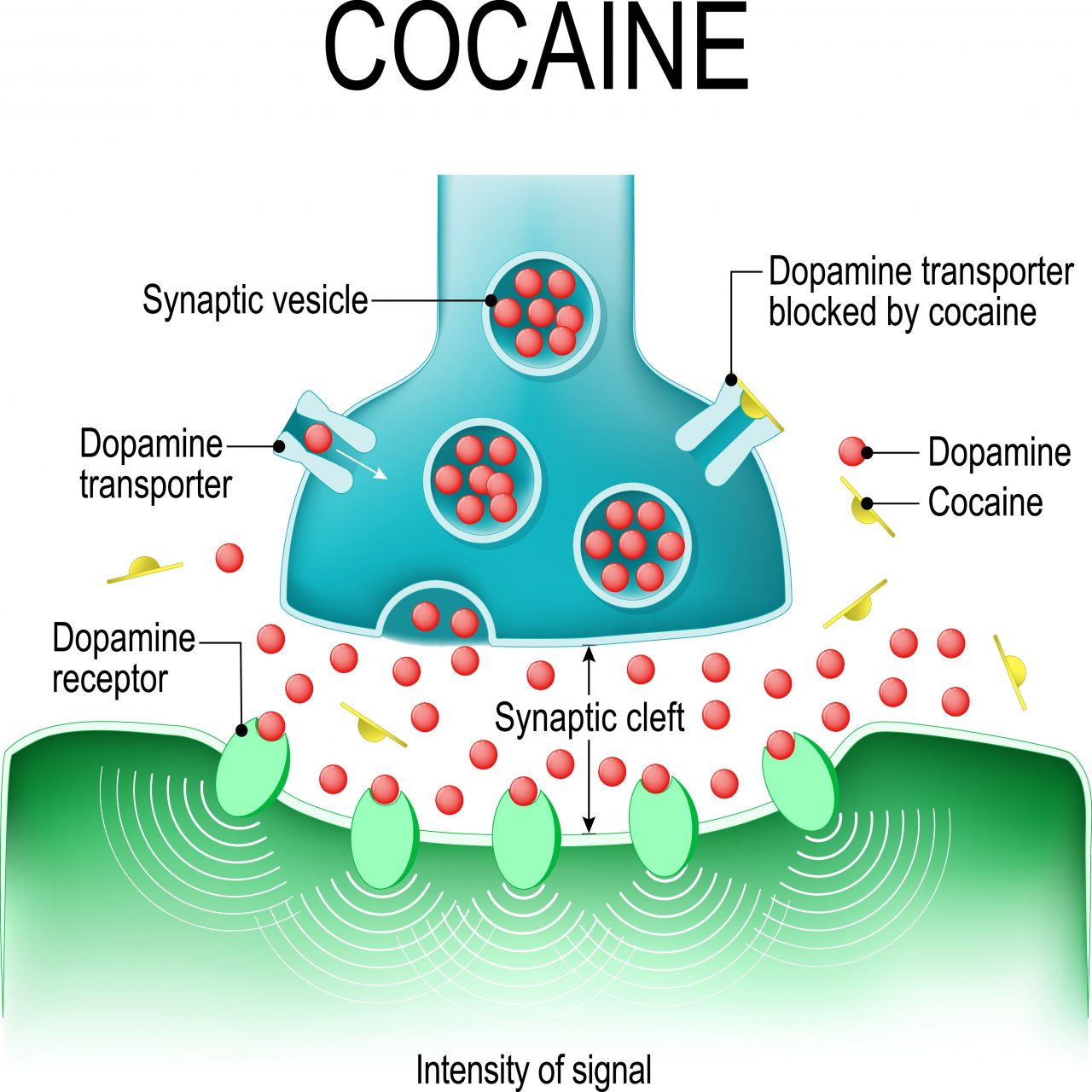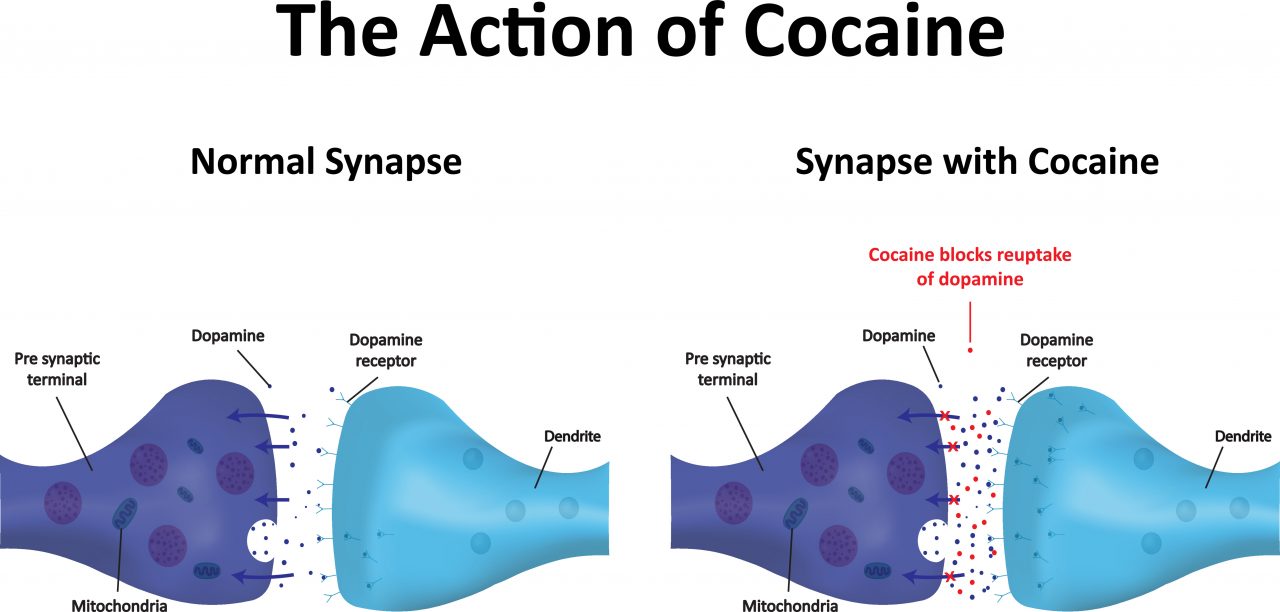Reviewed By:
Cocaine is a widely used drug, but misconceptions have led to a recent rise in overdoses. Here are answers to common questions about how it affects you, and why it's so hard to quit.
Table Of Contents
- How does your body process cocaine?
- What are the immediate effects?
- How soon do you feel the effects of cocaine?
- Why have there been so many overdoses?
- What happens if you mix cocaine with alcohol?
- What drug tests detect cocaine?
- What factors impact how long cocaine stays in your system?
- Is there a difference between snorting and freebasing?
- What are cocaine side effects?
- What are cocaine withdrawal symptoms?
- How can you get rid of cocaine in your body?
- Why is it so hard to quit cocaine?
- How can you stop using cocaine?
While the opioid crisis has dominated addiction headlines, cocaine overdoses have been steadily rising. After a period of relative stability a decade ago, the CDC reported that hospitalizations from cocaine rose 27% between 2013 and 2018. In fact, more than 10% of all emergency room drug overdoses can now be attributed to cocaine. Many of these tragedies involve first-time use.
These stats follow a steady rise in cocaine use. The National Health Institute on Drug Abuse reports that 2.2% of high school seniors used cocaine in 2019, and nearly 17% of adults over the age of 26 have tried it. Of the nearly 6 million Americans who admitted to using cocaine in 2017, about 600,000 were hospitalized due to overdose.
To combat misconceptions about cocaine, we’ve compiled common questions about the drug, including what it does to the body and how to get help for addiction.
Cocaine FAQ
How does your body process cocaine?
Cocaine works by artificially boosting your dopamine levels. Dopamine is a feel-good chemical in your brain that controls motivation. Some call it the brain’s “reward center.” With continued use, the brain gets used to this heightened level of dopamine, distorting the way you feel without cocaine. At the same time, your brain starts producing less dopamine, so your brain craves cocaine to feel “normal.”

What are the immediate effects?
As a stimulant, cocaine raises your heart rate, blood pressure and temperature. You might feel this as a boost in energy levels and a feeling of euphoria, followed by feelings of anxiety, panic and paranoia. Some people experience muscle twitches, vertigo and erratic behavior.
How soon do you feel the effects of cocaine?
The “high” feeling associated with cocaine is typically short-lived, but felt instantly. A single hit lasts for about 30 minutes if the substance is snorted, or about 5 to 10 minutes if injected or smoked.
Why have there been so many overdoses?
Increased use is only one part of the equation. Over the last decade, cocaine has also become more likely to be laced with powerful synthetics like fentanyl. Users are also more likely to mix cocaine with drugs like opioids, which can create opposing forces within the body. As opioids depress the central nervous system, cocaine stimulates it. This puts pressure on the heart, leading to overdose.
What happens if you mix cocaine with alcohol?
Many people will seek out cocaine to continue to be able to drink, especially in the college and party scene. Most “young adults” will try it for this purpose and are not aware of the risks. When alcohol and cocaine are mixed, the liver processes it as cocaethylene, which is processed in the liver, the only organ that processes alcohol.
The danger of mixing alcohol and cocaine, beside the above, is also that since cocaine is a central nervous system stimulant and alcohol is a central nervous system depressant, the use of cocaine aids in a person drinking more. Our bodies have a great capacity to let us know when we have drank too much-vomiting, passing out, etc. But when using cocaine it overrides that and many people end up hospitalized from alcohol use.
What drug tests detect cocaine?
Most standard drug tests will detect cocaine. These tests use your hair, urine, saliva, or sweat to test for chemicals that indicate recent use. Urine tests are the most common among physicians and employers, although some employers have increasingly started using hair follicle tests. Although less accurate, hair follicle tests give a longer snapshot of use — up to 90 days, compared to a few days for a urine test.
What factors impact how long cocaine stays in your system?
On average, cocaine stays in your system from one to four days after you have used it. There are a number of factors that may lengthen or shorten the amount of time the substance is in your system. Factors include how much you use, how often, the method in which you used, the purity level of the cocaine, your body fat, and whether or not you use any other substances at the same time.
Is there a difference between snorting and freebasing?
The main difference between snorting and freebasing is the method of ingestion. However, these methods also impact your body in different ways. Snorting cocaine is more likely to impact your heart and nasal passages, whereas freebasing will have a more profound impact on your lungs and other organs.
What are cocaine side effects?
Snorting cocaine can create holes in your septum (the wall dividing your nasal cavities) that cannot be repaired without surgical treatment. Long-term use can also lead to chronic nose bleeds, lung damage, and even death. Chronic use can increase your risk of heart attack, among other health problems.
What are cocaine withdrawal symptoms?
The first withdrawal symptom of cocaine is a sudden crash in energy. This is followed by intense cravings for cocaine and increased irritability. Many times people will also experience extreme mood swings and paranoia. Physical withdrawal symptoms, such as vomiting or shaking, are less common with cocaine than with other drugs, but possible.
How can you get rid of cocaine in your body?
Regardless of what you might read online, you cannot accelerate the way your body metabolizes cocaine. You can mitigate the feeling of coming down by drinking lots of water and refraining from using other drugs such as alcohol, but the best way to get rid of the cocaine in your body is to stop using. For many people, this means seeking professional help.
Why is it so hard to quit cocaine?
It’s nearly impossible, and even dangerous, to “just quit” cocaine without professional help. This is for many reasons — none of which are a user’s fault. The first reason is physical. When dopamine levels become badly imbalanced, the brain craves cocaine to restore its natural levels. These are powerful urges to deny.
Secondly, cocaine use is often a symptom of a broader mental health issue that needs dedicated treatment before recovery can take place. The party lifestyle, for example, can be a way to avoid dealing with anxiety, depression or other important mental health issues. Professional treatment helps you identify what makes you want to use cocaine and addresses those root issues.

How can you stop using cocaine?
Recovery from any addictive drug is a journey. Thankfully, it’s not one that you need to take alone. There are a number of treatment facilities, both inpatient and outpatient, that can give you the support and resources you need to overcome physical addiction and address the underlying mental health issues that may be driving your use. These programs often take multiple types of insurance. Many people thrive in outpatient programs that allow them to stay at home and continue going to work or school. You may also consider enlisting the help of your family physician and family.
The Bottom Line
Although cocaine may receive fewer headlines than opioids or newer synthetics, it’s still a dangerous drug that can lead to hospitalization and overdose. It’s also highly addictive, but help is available through professional treatment. Many programs also incorporate support systems within the recovery community, such as narcotics anonymous (NA).
At Sprout, we offer inpatient and outpatient treatment programs that prioritize your whole physical and mental health. Have more questions about cocaine? Our team of nurturing intake professionals is happy to answer them. Ask us a question in the chat box, or call the number below.
Have questions about addiction?Chat with one of our recovery specialists now.


